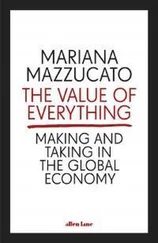The “Big Four” (or whatever it is at this reading, having come down from the “Big Eight,” perhaps the “Big 1.5”) consultancies are the stepchildren of accounting and audit firms. Consequently, they have been fixated on billing rates that are based on hours, fit nicely into boxes on a spreadsheet, and can be conveyed in a no-thinking-required fee schedule. These are, after all, descendants of the primeval bean counter . Their dilemma, facing the tremendous overhead of multiple offices, advertising, and huge recruiting costs, has been addressed by creating an army of inexpensive technicians who descend on the client with an hourly billing rate that is somehow digestible but significant enough to generate profit when multiplied by the legion of consultants assigned to the account. This model has been adopted by smaller firms and independent practitioners who, frankly, should know better.
Supply and demand tends to get way out of whack when the consulting firm can produce a prodigal supply of low-level people, irrespective of the actual client demand. And this tactic has, understandably, driven clients to ask: “Can you do this with fewer people?” “Can you do this in fewer days?” “Can you do this with cheaper people?”
These are not the questions we want a client to be asking. I'd rather hear a client ask: “How can we maximize the results?” “Will you work with me on this as a partner for as long as it takes?” “Will you assure me access to you personally?”
These latter questions represent the value of a long-term relationship, not an attempt to get me out before I run up too much of a bill.
Leave supply and demand to the economists or the people raising ostriches. It has nothing to do with good consulting, and it should never be used as a basis for fees.
ETHICAL CONFLICTS OF INTEREST AND OTHER MINOR MATTERS
Whenever a consultant accepts work on the basis of being paid for time spent on the project, an immediate conflict of interest arises. There is no way around this, the problem is always present, and it is caused by the following.
First of all, the consultant only makes money when physically present or able to demonstrate that time is being expended somehow, somewhere for the client. This tends to compel the consultant to do the following:
Maximize, not minimize, the number of physical activities (focus groups, interviews, observations, meetings, and so on)
Accept peripheral assignments that may not be integral—or even important—to the actual project
Encourage and not discourage scope creep, since there is no penalty for blurring the project boundaries
Recommend nonessential tasks that don't contribute to results but do contribute to billable hours 3
Value-based fees are far better for the client because they remove the ethical compromises that attend hourly or daily billing. You want the client to make a single return-on-investment decision at the time of the proposal, not a new ROI decision every day (or hour).
The client has to make an investment decision, in effect, every time the consultant may be able to offer some help. Hence a normal helping relationship is reduced to ROI concerns on even the most minor occasions:
The client may decide that a $10,000 issue isn't worth $2,500 of consulting help, ignoring the fact that the consultant's expertise could help unearth the $400,000 issue underlying it.
Subordinates are loath to use the consultant because approval is required from superiors for the additional fees, and the subordinates may not want to admit so readily that help is needed so frequently.
Clients may forgo legitimate additional extensions of the project purely out of cost considerations, even though work in those areas would add immeasurably to the client's betterment.
Conflicts with Client Purchasing Policies
Alanism: A client should not have to make an investment decision every time the client believes the consultant may be of help.
Most organizations have policies for dealing with “vendors,” and once you quote time-based fees, you will become no less a vendor than the plumber or the computer repair guy.
In putting yourself in the same category as other hourly vendors, you are asking the client to treat you differently by not requiring a limit on hours or by not adhering to company hourly billing policies. (“We never pay trainers more than $2,500 a day.” “But I'm not a trainer.” “You're in the same category.”)
A good purchasing manager or vendor coordinator is paid to extract the best possible rates from vendors. Consequently, they will always try to minimize your time rates, and you will be in danger of pitting your corporate buyer against his or her own purchasing function. Their incentive and raison d'être is to reduce your fees.
If the company accepts billing for hourly units, how do you conscientiously bill for portions of hours or quick phone responses? Do you emulate the legal practice of making everything a fifteen-minute minimum, even if the call takes two minutes? Do you aggregate them and somehow justify them on a time sheet? This is not all that far from fudging the numbers. (If you're doing research that benefits two clients, do you charge them each for the same half-day, or do you prorate it?)
Preserving Client Budgetary Limits
Almost any client will reasonably ask for some estimate of investment so that a proper budget can be allocated. Even with the most exacting formula, these are always only estimates, and the client's budget is actually endangered constantly.
Alanism: Money is not a resource, it’s a priority. The idea is to be such a high priority with such a great ROI that the client reallocates funds to you and away from something else.
If, at a critical point in the project investigation, you and the client find an unforeseen critical need, how can the client appropriately budget more funds or preserve those already in place? Must you lower your hourly rate, demand additional funds, or ignore the urgency?
The client is too often forced into a Hobson's choice: some priorities can be met but not others as the hours and days build and the meter constantly ticks away at the fixed budget.
If there is more than one budget involved among multiple buyers, how are the funds correctly allocated? If the actions of one department demand remedial work in another, which should be properly assessed, and by how much? Not everyone is going to be happy with the decision.
As projects unfold, something has to give: Either the client will have to come up with additional funds to pay for more hours, or the consultant will have to leave work undone (or work free of charge). Why on earth get into that position?
There's one final ethical issue I want to discuss, which often doesn't arise as an ethical problem but actually is one: downward pressure on consulting fees when they are based on time and materials.
The client's natural compulsion will be to reduce one or both of the only two variables representing the buyer's costs: amount of time or amount of money per time unit. The consultant will be compelled to try to do the exact opposite. However, since the client is the only one who can say yes or no, the buyer's determination will prevail. Three bad things immediately transpire:
1 The buyer and consultant are in an adversarial position, despite working together, presumably as partners, on the same goals. One is trying to minimize involvement, and the other is trying to maximize it. Yet the point should be active collaboration toward goals, not concern about the methodology or involvement to reach the goals.
Читать дальше












